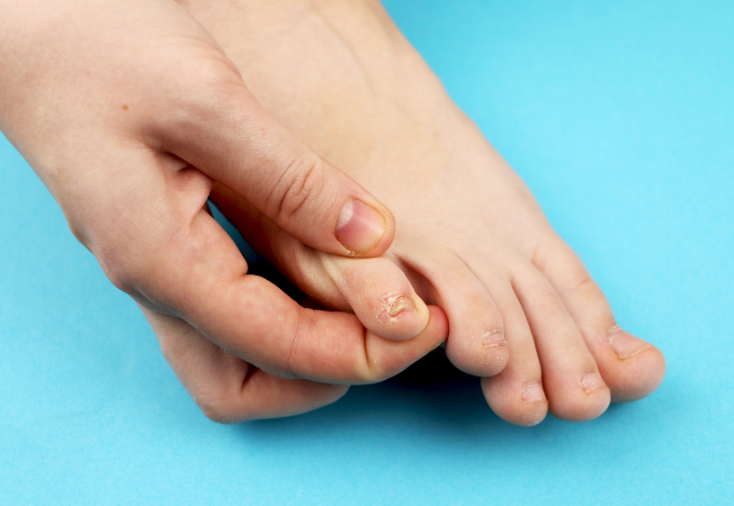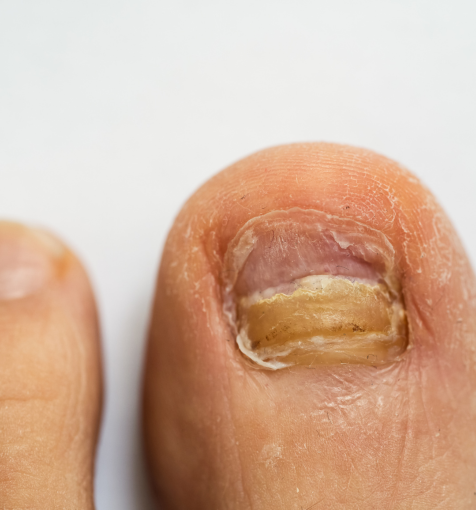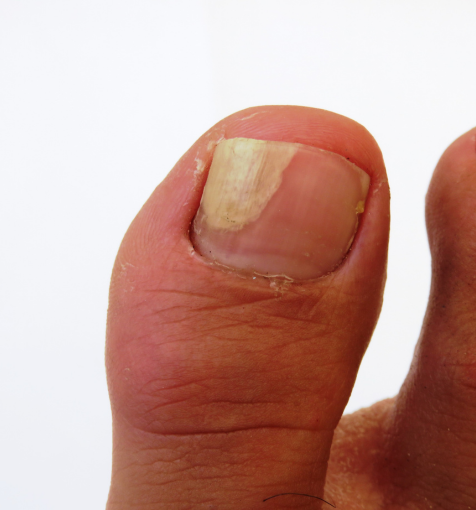Effective Diagnosis and Treatment for Discolored or Brittle Nails in New Jersey
Toenail fungus, also known as onychomycosis, is a common fungal infection that can lead to discolored, brittle, and unsightly nails. While it is usually painless, it can cause discomfort, embarrassment, and in some cases, difficulty walking or wearing shoes. At Skin & Laser Center of NJ, we provide effective, noninvasive treatments to eliminate toenail fungus, restore nail health, and prevent recurrence.


Toenail fungus occurs when fungal organisms invade the nail, often due to:
Prior fungal infections, including athlete’s foot
Exposure to warm, moist environments such as swimming pools or locker rooms
Prolonged exposure to wet nails
Direct contact with someone who has a fungal infection
Certain individuals are genetically predisposed to fungal infections, which increases the likelihood of recurrence even after successful treatment. Proper identification of risk factors is essential for effective management and prevention.
Toenail fungus can vary in severity, but common symptoms include:
Nail discoloration (yellow, white, or brown)
Thickened or brittle nails
Crumbling or splitting of the nail
Debris buildup beneath the nail
Occasional odor in severe cases
Early treatment is important to prevent the infection from spreading to other nails, the skin, or even to family members.


Our providers offer personalized, effective care for toenail fungus, including:
Topical antifungal treatments: Applied directly to the affected nails to target fungal growth
Oral antifungal medications: For more persistent or severe cases
Preventive care guidance: Tips on nail hygiene, proper footwear, and avoiding high-risk environments
With professional treatment, most cases of toenail fungus improve gradually, and patients can regain healthier-looking nails and confidence.
Learn More About Toenail Fungus
Because toenail fungus is generally painless, many patients might be tempted to ignore the problem—but treatment is important and can prevent your infection from causing further damage to your nails. After getting a fungal nail infection, patients with diabetes have an increased risk of developing sores that do not heal. Because of this, it’s important to consult with a dermatologist (or other doctor) at the first sign of a nail problem. A provider at Skin & Laser Center of NJ can either confirm your toenail fungus diagnosis or offer an alternate diagnosis after a visual examination of the affected nails and nearby skin. This may involve taking a sample of your nail and sending it to the lab for evaluation to confirm the diagnosis.
Treatment for toenail fungus usually begins by trimming the infected nails and keeping them short. If you have a mild infection, a medicine that you apply to your nails may get rid of the problem. This treatment helps keep new toenail fungus out while new, healthy nails grow. Toenails usually take 12 to 18 months to grow out.
Toenail fungus patients that require more aggressive treatment may get a prescription for antifungal pills. These have a higher cure rate than medicine you apply to your nails, but they also have more potential side effects. Antifungal pills also work more quickly than medicine applied directly to the nails. Taking antifungal pills for three months can cure an infection under the toenails.
Toenail fungus can return even after a successful antifungal pill treatment, so it is important to continue preventive foot care. Spray an antifungal spray into your shoes before you put them on and after taking them off. Allow your shoes to air out for 24 hours before you wear them again.
Nail psoriasis—a form of the chronic condition—can cause toenails to become pitted and crumbly. Our providers can examine your nails and diagnose the problem, as well as provide treatments for managing the signs and symptoms of the condition. Melanoma of the nail unit can look like a dark line in the nail. This condition is rare, but can be deadly. For any nail abnormalities, schedule an appointment with us.
Convenient walk in hours available below. No appointment needed! Accepting private insurance and medicare. No medicaid plans.
Learn more about medical treatments at New Jersey’s Skin & Laser Center of NJ. Call 201-500-7525 or contact us online to schedule a consultation.